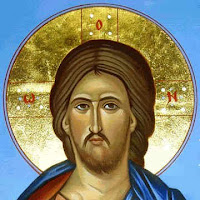A.S. Haley: Full Analysis of the Virginia Decision
Once Burned, Twice Shy: the Cautious Jurisprudence of Judge Randy Bellows
January 14, 2011
Excerpt:
But once Judge Bellows placed the Episcopal Church (USA) into the "hierarchical" category, the result under Virginia law and precedent followed, as the night follows the day. And it is not right, under our First Amendment, that there should be such a profound dichotomy in our religious jurisprudence. The States (and the federal Government itself) are forbidden from establishing any Church. That means they cannot favor any one church over another -- but that is exactly what the courts do when they call a church "hierarchical", and then allow it to circumvent all manner of civil property law and recorded notice.
The irony is that the distinction was introduced in the first place as a means of keeping the courts from getting too involved in the internal polity of churches -- by way of respecting the restrictions imposed through the First Amendment! But the distinction has now been carried way too far to the other extreme, so that the courts have erected a privileged class of religious litigants who are able to control real property in a way that no other citizen can. The consent necessary for such an arrangement has to be implied, because it is rarely express or explicit. And to imply such an all-yielding consent requires judges to fill up a hundred pages with minute details of every sort, just to make it appear as though there really is some substance there -- that by using ECUSA's Hymnal and Prayer Book, and by putting a sign out front that they are an "Episcopal" church, the parishes in question really did mean to surrender final control of all of their property and bank accounts to outside entities who do nothing to sustain that property.
Not only that, but the consent thus "implied" has to be taken to cover even the case where neither the Diocese nor the national Church has any use for the properties, except to turn them into cash and prevent their continuing use for purposes of worship.
Passing national canons in General Convention does not excuse the bishops from their fiduciary duty to advise and warn parishioners constantly and in advance of the consequences of giving money to their local church. For as Bishop O'Neill of Colorado famously testified in court there, "No one expects church members to know about the canons." It is up to the Bishops to see to it that every parish is made fully aware of the consequences of belonging to ECUSA, and they have failed miserably to do that. And for that very reason, we have the spectacle of the shock and surprise that comes after contributing millions and millions of dollars -- only to be told that what you were supporting really belonged to distant authorities who would never be able to put your good works to the use that you did, for so long.
the rest


0 Comments:
Post a Comment
<< Home